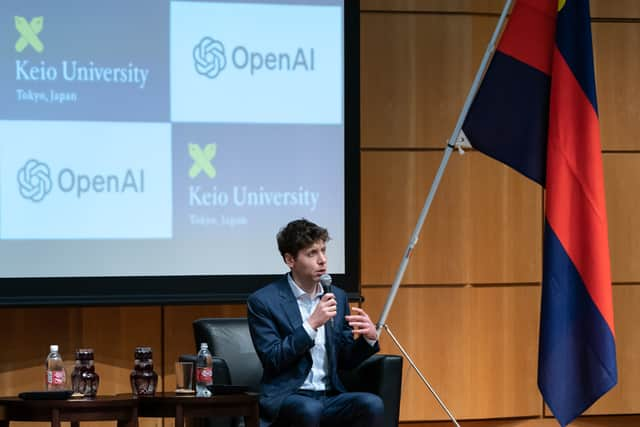ChatGPT; lawsuits filed against AI tool creators OpenAI amid claims of breach of copyright and information
People in this article
and live on Freeview channel 276
Amid the good and bad that is being discussed regarding how artificial intelligence is being used in both professional and everyday life, ChatGPT may now have to contend with two lawsuits regarding copyright rules and personal information.
Authors Paul Tremblay and Mona Awad are claiming that use of their work without permission was used as part of ChatGPT’s “learning,” mining thousands of books and copying data without permission, which the duo believes is consistent with copyright infringement.
Advertisement
Hide AdAdvertisement
Hide AdPer Reuters, the federal suit estimates that OpenAI's training data incorporated over 300,000 books, including from illegal "shadow libraries" that offer copyrighted books without permission. Tremblay and Awad said ChatGPT could generate "very accurate" summaries of their books, indicating that they appeared in its database.
The lawsuit said books are a "key ingredient" because they offer the "best examples of high-quality longform writing," however that is not the only lawsuit that OpenAI are looking to have to contend with. How information keyed into ChatGPT and what is retained through it’s “mechanised learning” has also come into the spotlight.
Fortune reports that a number of anonymous individuals are looking to bring a class action lawsuit against the company for secretly scraping 300 billion words from the internet, tapping “books, articles, websites and posts — including personal information obtained without consent,” according to a sprawling, 157-page lawsuit.


“Despite established protocols for the purchase and use of personal information, Defendants took a different approach: theft,” they allege. The company’s popular chatbot program ChatGPT and other products are trained on private information taken from what the plaintiffs described as hundreds of millions of internet users, including children, without their permission.
Advertisement
Hide AdAdvertisement
Hide AdThe plaintiffs, who remain anonymous with this lawsuit for fear of public reprisal, filed their lawsuit on Wednesday in a federal court in San Francisco and are represented by the Clarkson Law Firm and are seeking $3 billion USD (£2.3 million GBP) in potential damages for the harmed individuals filing the class action lawsuit.
OpenAI has yet to comment to either media outlet regarding both the lawsuits that they and ChatGPT now have to contend with, as the argument if A.I is for the betterment of mankind or a risk to a “civilizational collapse,” to quote the class action, continues.
Comment Guidelines
National World encourages reader discussion on our stories. User feedback, insights and back-and-forth exchanges add a rich layer of context to reporting. Please review our Community Guidelines before commenting.
